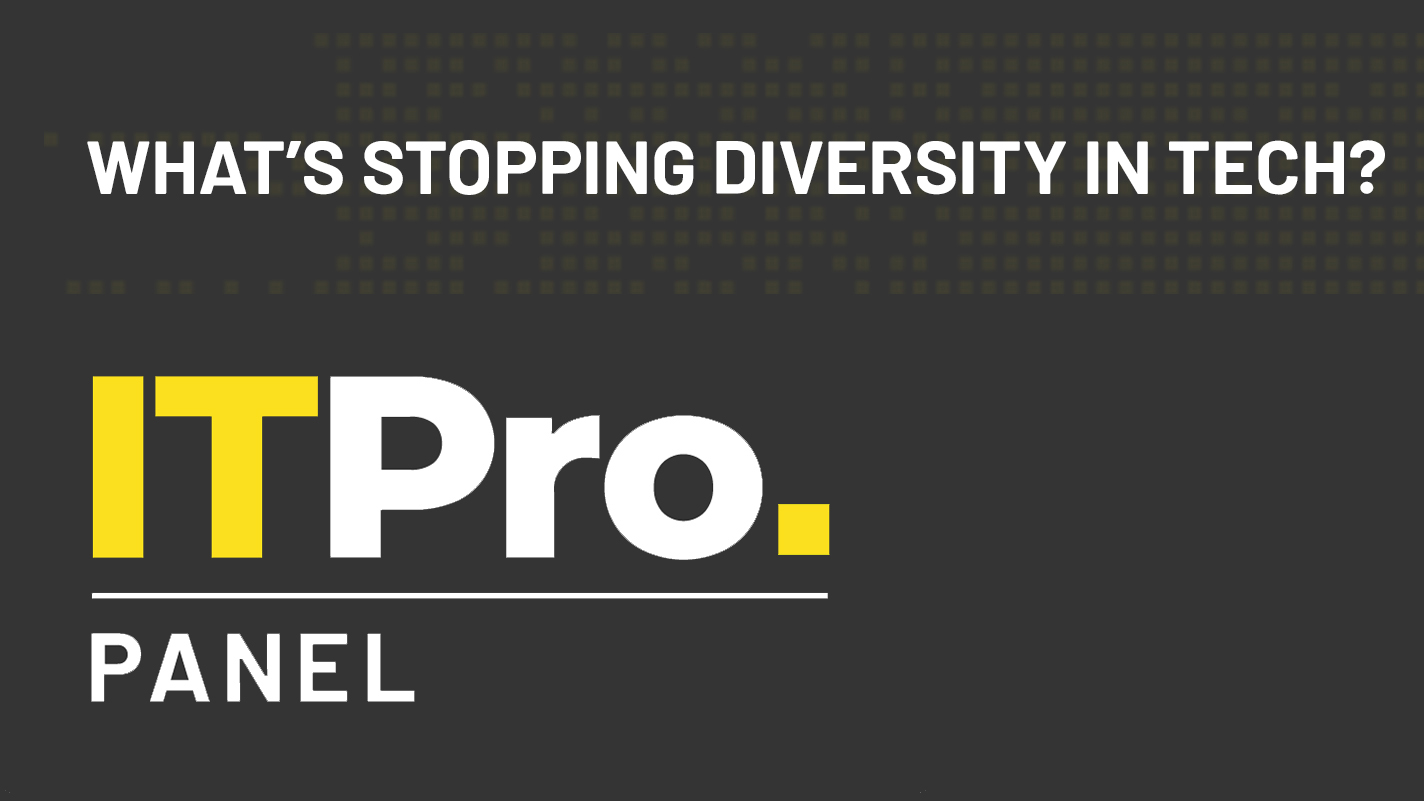Is it time to get rid of women in tech?
With International Women’s Day taking place this weekend, perhaps it’s time to reexamine the way we think about gender in the industry


What springs to mind when you hear the phrase “women in tech”? Maybe it’s a sassy young coder or quirky analyst from a TV show. Maybe it’s lunches and breakout sessions at tech conferences to network and discuss the problems of gender diversity (or lack thereof) and discrimination. Maybe it’s government initiatives to encourage girls and young women to pursue training and careers in STEM. At a push, maybe it’s a high-profile woman in the tech industry, like Sheryl Sandberg.
Even if it’s not one of the examples I”ve just listed, it’s probably fairly easy to come up with one archetype or another.
Now what if I ask you to think about a ‘man in tech’? While your mind might possibly flick to the ‘nerd’ stereotype, other than that it’s likely just a man, perhaps bearded and fairly casually dressed.
This is the fickle problem of ‘women in tech’ pitches and initiatives. By designating tech workers who identify as female as ‘women in tech’, we’re in danger of reinforcing the idea that this is not the norm – a woman in tech is a rare species, a delicate flower that must be protected, something unusual and irregular. A fish out of water, perhaps.
Drop the W
Of course, the tech industry isn’t the only one where women have had to fight for recognition. It was only in 2018 that women were able to fill roles in all areas of the British Armed Forces, including close combat, for example.
But when it comes to women in tech, I think a better example to look at is women in the police service.
Many readers will remember a time when police officers in the UK were divided into two categories: police officers and women police officers. This gave us PCs and WPCs, DCs and WDCs, and so on.
Get the ITPro daily newsletter
Sign up today and you will receive a free copy of our Future Focus 2025 report - the leading guidance on AI, cybersecurity and other IT challenges as per 700+ senior executives
While women may not have had quite the same role as men when they were first allowed to join the police force in 1915, by the mid-to-late 20th Century they certainly did. In acknowledgement of that (perhaps belatedly), the “W” was dropped in 1999, with all police officers being just that – police officers – irrespective of their gender.
That’s not to say that any differences or difficulties go unacknowledged and undealt with; The British Association for Women in Policing continues to exist and advocate for the needs and concerns of women working in the police service. But at a base level, removing the “W” from police ranks recognises there’s nothing fundamentally strange or different about a woman being a police officer.
This should be the case for women in the tech industry as well. “Female coders”, “geek girls”, “women in tech” should go the same way as the WPC – they are just coders, geeks, techies.
Striking a balance
Moving from a campaign for access and recognition to one of integration and inclusivity doesn’t mean we must never talk about issues affecting women in the tech industry ever again, though. In the same way that the British Association for Women in Policing continues to exist as an advocacy organisation even if women police have disappeared as a category, so we should continue to advocate for the voices and experiences of women in the tech industry.
But treating “women in tech” as some kind of special class does nothing more than reinforce the idea that a woman with a computer is an oddity, and further increase the ‘otherness’ felt by many women in a field that is often still hostile.

Jane McCallion is Managing Editor of ITPro and ChannelPro, specializing in data centers, enterprise IT infrastructure, and cybersecurity. Before becoming Managing Editor, she held the role of Deputy Editor and, prior to that, Features Editor, managing a pool of freelance and internal writers, while continuing to specialize in enterprise IT infrastructure, and business strategy.
Prior to joining ITPro, Jane was a freelance business journalist writing as both Jane McCallion and Jane Bordenave for titles such as European CEO, World Finance, and Business Excellence Magazine.
-
 Should AI PCs be part of your next hardware refresh?
Should AI PCs be part of your next hardware refresh?AI PCs are fast becoming a business staple and a surefire way to future-proof your business
By Bobby Hellard Published
-
 Westcon-Comstor and Vectra AI launch brace of new channel initiatives
Westcon-Comstor and Vectra AI launch brace of new channel initiativesNews Westcon-Comstor and Vectra AI have announced the launch of two new channel growth initiatives focused on the managed security service provider (MSSP) space and AWS Marketplace.
By Daniel Todd Published
-
 It’s the end of the road for Women Who Code, following loss of “critical” funding
It’s the end of the road for Women Who Code, following loss of “critical” fundingNews The organization supporting women in the tech industry is being dissolved 13 years after it was founded
By Emma Woollacott Published
-
 Five common barriers holding back women in tech
Five common barriers holding back women in techWomen in tech still face significant challenges in the workplace
By Keri Allan Published
-
 Report: Brexit and COVID to blame for lack of diversity in tech
Report: Brexit and COVID to blame for lack of diversity in techNews One in two surveyed respondents cited the two events as key factors in the failure to improve diversity in leadership roles
By Sabina Weston Published
-
 Australia allocates $6.7 million to advance women in STEM initiatives
Australia allocates $6.7 million to advance women in STEM initiativesNews Women make up only 28% of the country's STEM workers
By Zach Marzouk Published
-
 IT Pro Panel: What’s stopping diversity in tech?
IT Pro Panel: What’s stopping diversity in tech?IT Pro Panel The need for more diversity is well established - but we still have a way to go
By Adam Shepherd Published
-
 AWS partners with NPower to boost jobs for women of color in tech
AWS partners with NPower to boost jobs for women of color in techNews Command Shift will find tech jobs for underserved group
By Danny Bradbury Published
-
 AWS and The Dream Collective aim to bring more women into tech
AWS and The Dream Collective aim to bring more women into techNews The SheDares learning program offers women expert advice on how to pursue a career in technology
By Praharsha Anand Published
-
 Why aren’t women heading more tech startups?
Why aren’t women heading more tech startups?In-depth Women are in incredibly short supply as founders of top tech firms. What’s going on, and can the situation change for the better?
By Sandra Vogel Published